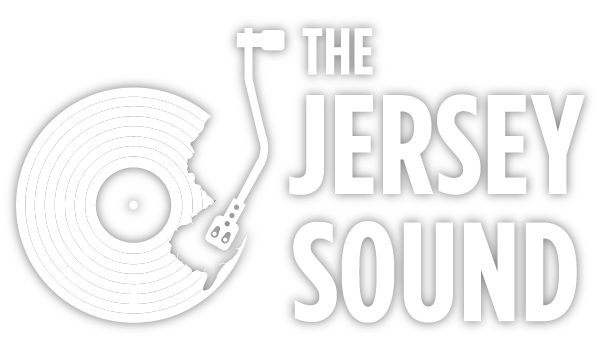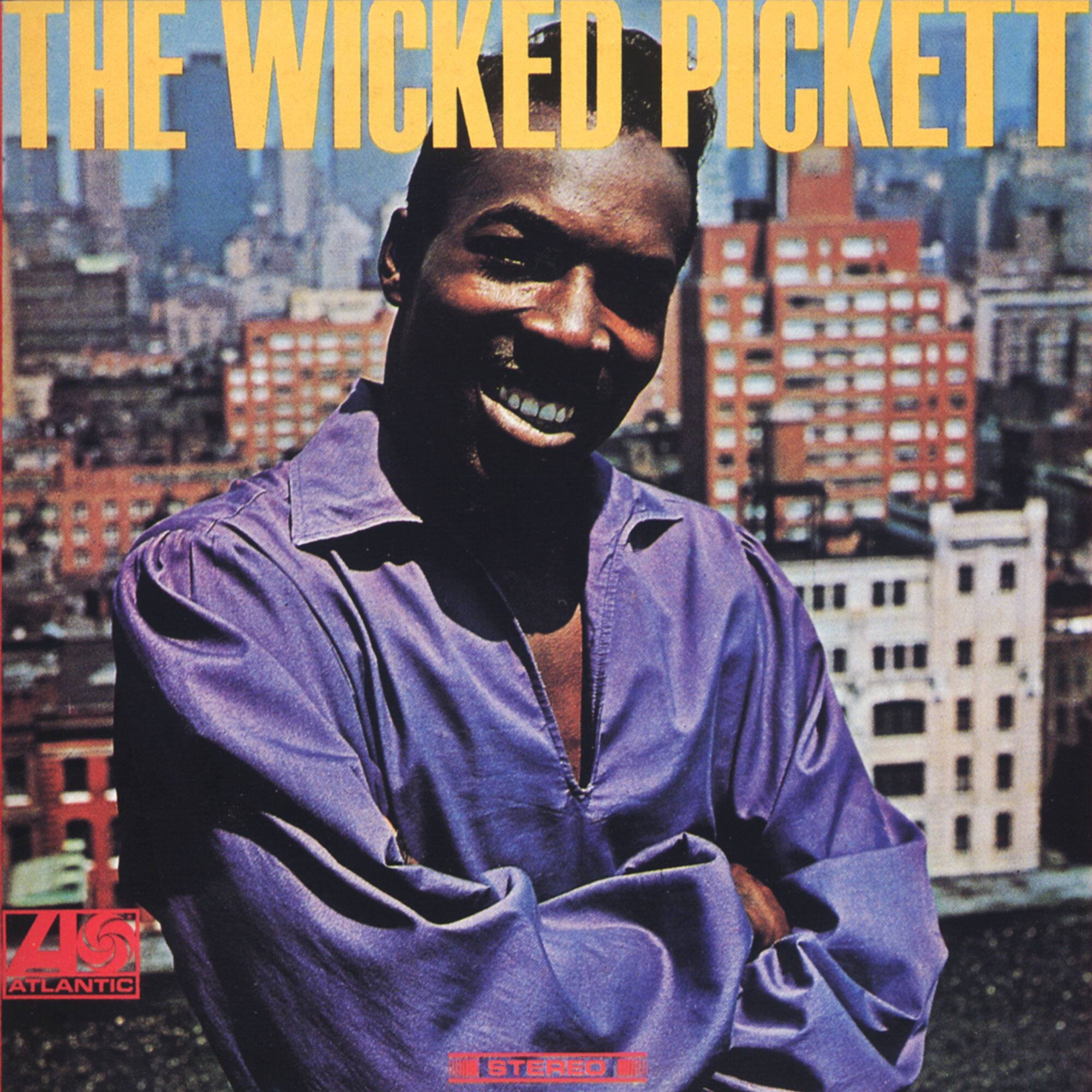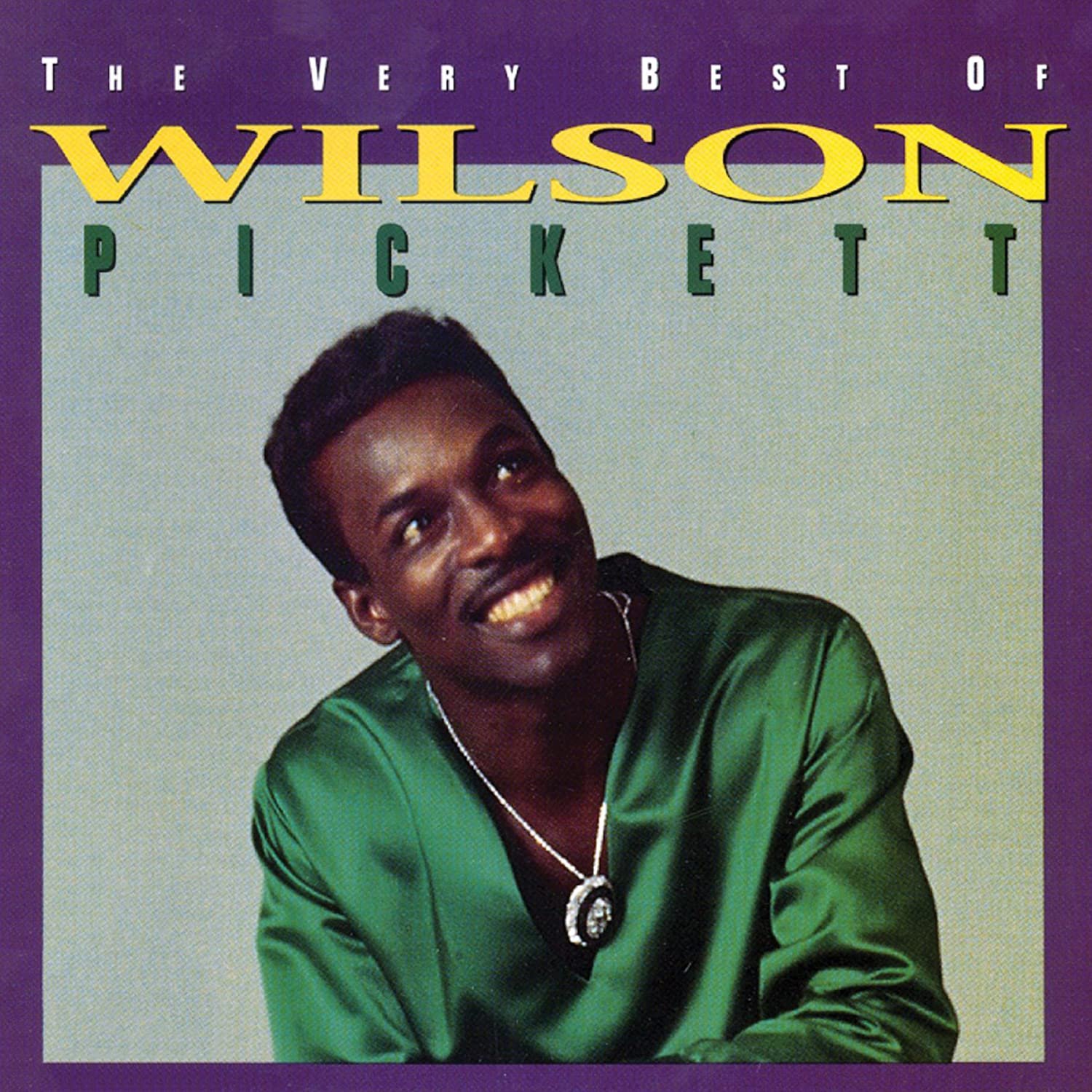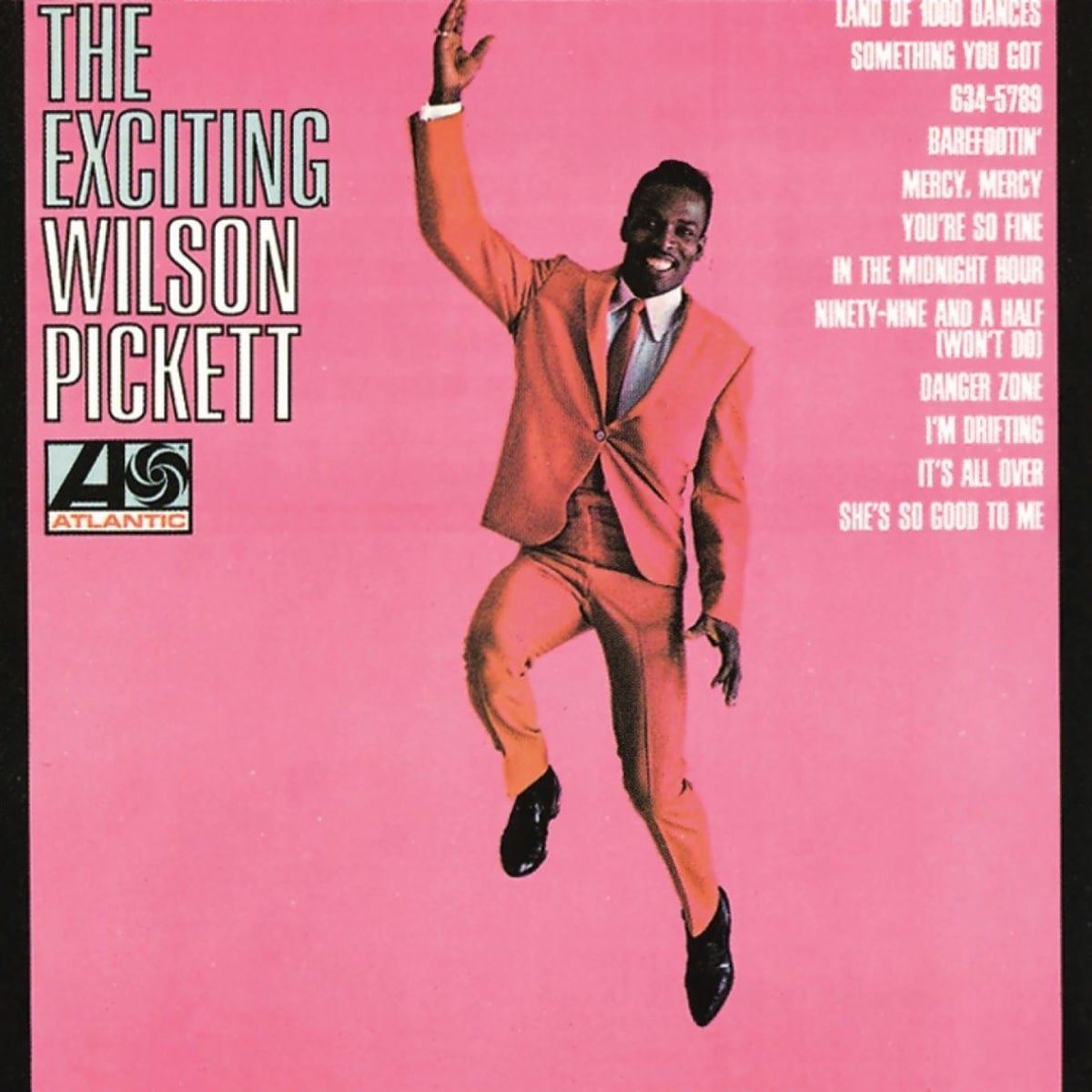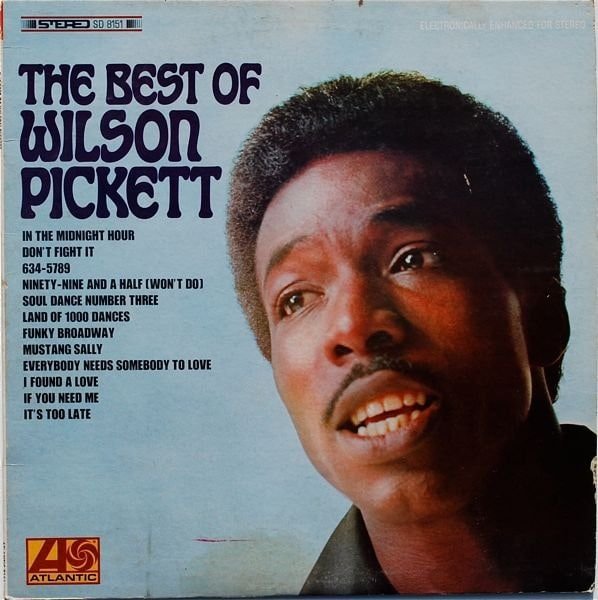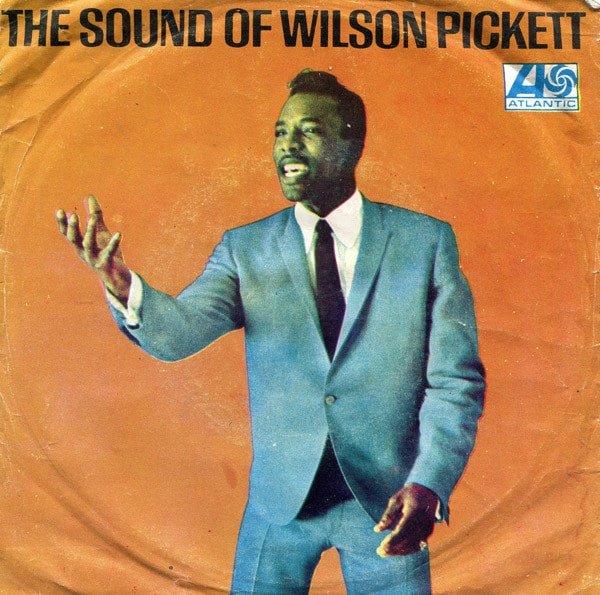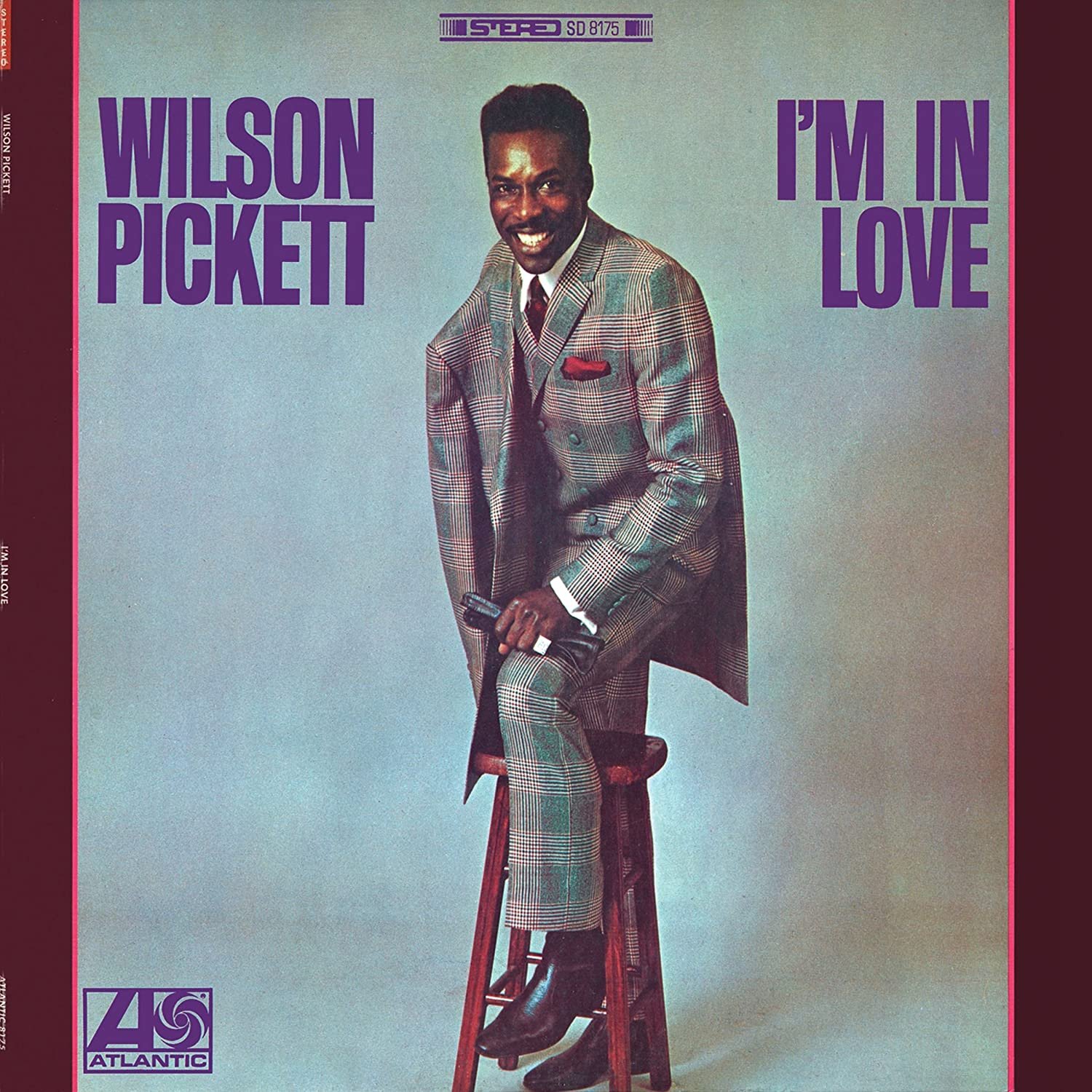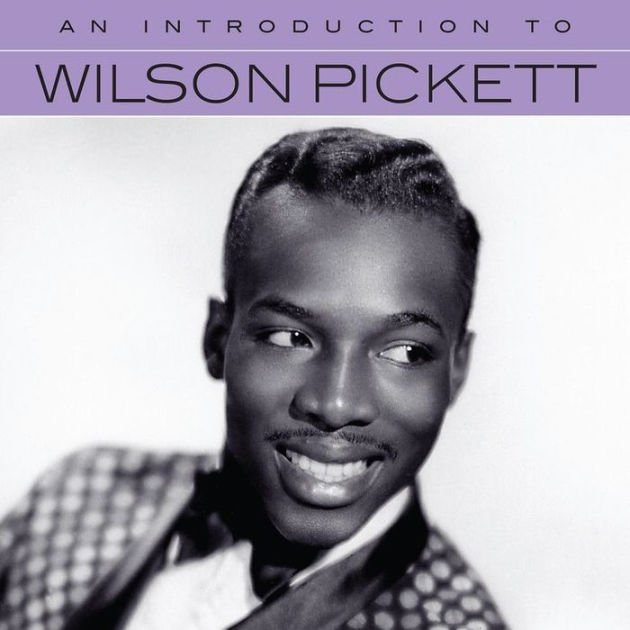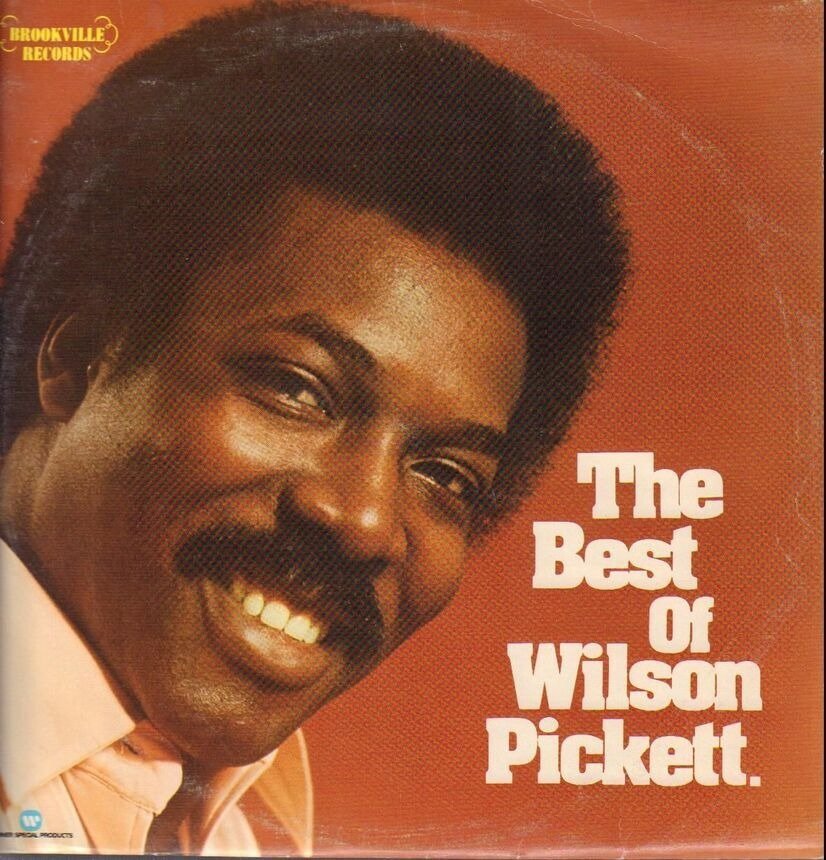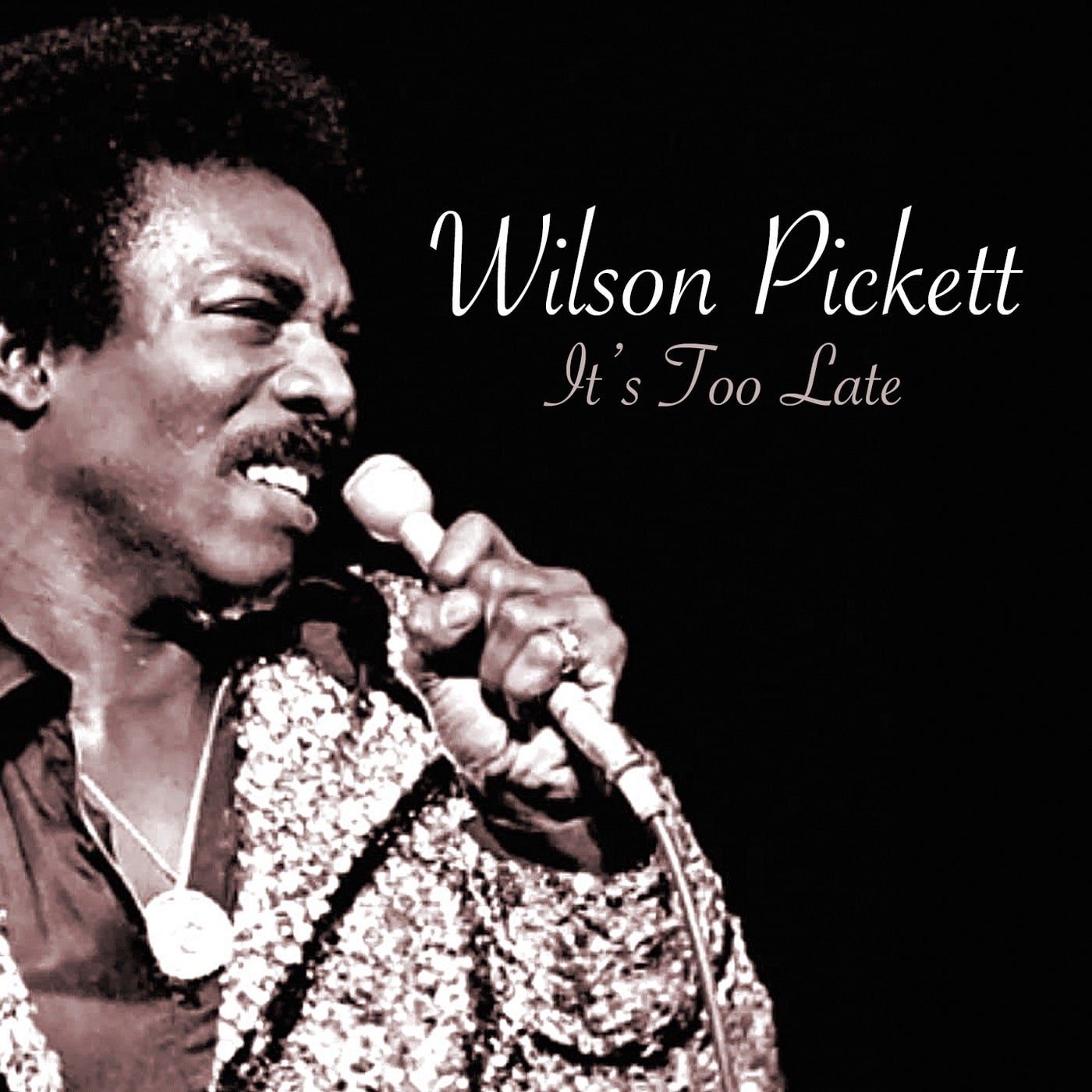Wilson Pickett: The Return of The Soul Man
(Originally published April 1980. Posted with permission of The Aquarian Weekly.)
PHOTO: Wilson Pickett in action when Jimi Hendrix was his lead guitarist.
Wilson Pickett served as a role model for thousands of potential soul singers with his style, gruff delivery and charisma. For the last three years of the 1970s, however, the man and his music have been unaccountably silent. When one reaches the height and then drops from sight, it’s natural for the rumor mill to start grinding. Rumors abounded that he quit the business, that he was forced to retire, that he was dead or that he simply tired of it all.
Now that the ‘70s are over and the ‘80s look to leave their own mark after only a few months in, The Wicked One is back bigtime on a new label (EMI America) with a new album, I Want You. Will this start him on the road to the top again? The bigger question is where has he been? What has he been doing for the last three years. Once his glorious reign as one of the Kings of Soul ended in the late ‘60s, he started a second career as a top soul crooner on the Las Vegas circuit that lasted until 1976.
Then what? Has he been counting his money at his Englewood, New Jersey home? Has he been cleaning his guns? Has he been eating up the profits? Is he big and fat now?
(Advertisement) Story continues below…
“No I ain’t fat,” he laughs. “But I do likes that bacon grease!” His voice on the phone sounds as raspy as ever. “I guess the answer to your question—and it’s a fair one—is that I just been good and lazy. That’s all there is to tell. I haven’t had a hit in quite awhile so I didn’t work. It’s laziness. I’ve always been like that. Hell, I’m still lazy today. But I know I got to get out there and work now.”
Work, to Wilson Pickett, means getting out there in front of thousands and doing his stuff, working out, testifying, and driving people crazy. Pickett has no empathy for disco performers who ply their craft in studios only. “The disco scene is very repetitious,” he groans into the phone. “People who are non-professional can do disco and have platinum albums. These same people aren’t even capable of going out and entertaining folks. Most of the groups don’t even exist. Our music wasn’t based on that. It was based on years of staying in the basement or writing and screaming your lungs out in church. Hey man, real soul music is coming back!
“I like a good beat,” he continues. “A great song should have a danceable beat. Ballads are also coming back strong. I want people like you to start writing about it once again so folks will put it back on their turntables once more. You got to write something positive about it, you hear me? Because we’ve definitely been out of the scene for way too long.”
Pickett may have been out of the scene, but his legend prevails. The most famous Pickett anecdote involves another respected act from New Jersey, The Isley Brothers. When I ask him about it, he hedges, pauses, breathes and sighs. “Alright fine, but let me say this, it’s been the critics and the DJs who have kept this thing such a mystery all these years. I’d actually like to clear it up right now. It’s been in the bag for such a long time.”
(Advertisement) Story continues below…
Indeed. Perhaps the most talked-out story was of a shoot-out in the parking lot of a Long Island nightclub. Pickett is quick to dispel that scenario. “It was a fight, actually,” he starts. “See, me and the Isleys used to hunt together for years. I was working in Vegas at the time and we were supposed to go on a hunting trip for three days. We all went up together and they were supposed to bring me back.
“Anyway, it was 200 miles out-of-town. After the three days, they wanted to hunt another two days. Now I got one more day to get back to Vegas before I blow my contract! They wouldn’t even drive me back to the highway so I could at least hitch a ride to my gig. They said I should find my own way back. So it was me and Ernie Isley, I think, arguing about it.
“I told the motherfucker it was wrong to leave me stranded in the woods when they know that Vegas is very strict about contracts. There were these two white kids holding me back because I was going knock the shit out of him.
“Then Rudy Isley heard the commotion and rushed out from the cabin and charged me and that’s what set it off. I got out my pistol and started shooting. It was nothing but a bullshit thing that I practically blew a career over and almost went to jail for. I had to pay out a lot of money. It was just a case of ego-tripping and not having respect for each other.
“Hell, had they brought me back when they were supposed to, everything would’ve been fine and none of that would’ve even happened. If they loaned me a car—and they had two of ‘em up there—then they could have picked it up later. I mean, we were friends and we still are. And the only reason none of us ever talked about it in the press before is because it was so stupid. It was just a matter of me getting my butt kicked a little bit and jumping the gun and firing a bullet through the door. That’s all but yea then we started shooting at each other.”
Good thing they’re all lousy shots! Pickett claims he still fishes and drinks with Kelly Isley. Repeated calls to the Isley camp drew no response about the incident.
(Story continues below)
Wilson Pickett gained his vocal chops in church on Sundays. “I used to listen to The Sensational Nightingales and The Blind Boys,” he says of his formative years in Detroit before he moved to New Jersey. After singing lead with a local R’n’B group in Detroit, The Falcons, the gospel-influenced Pickett co-wrote and recorded his first solo hit, “If You need Me” in 1963. Later that year, Soloman Burke brought it all the way up to #2.
(Advertisement) Story continues below…
Even the story of his 1959 marriage is etched in violence. “They held a shotgun on me,” he alleges. “You know how those old folks be. Her grandma said, ‘well, you know what you done done now, don’t you? You know what you got to do about it, don’t you?’ I said, `yes ma’am.’ I was only 18, nothin’ but a kid.
“My folks had to drive me to Toledo Ohio to sign for us. I will never forget that day. My father had one of those big ugly Buicks. We were kissing in the back seat all the way there. Oh, we really thought it was something how we were gonna get married and all. My pa kept looking at us in the mirror, asking if we still wanted to go through with it. When we finally got home, I didn’t even get to take my own wife home with me. Her parents were so against it all and she listened to them! I pitched a boogie-woogie but she still wouldn’t come home with me. It was a sad night me being alone on my wedding night. A year later her parents had it annulled.”
During the height of the mid-‘60s British Invasion, Pickett scored his greatest triumphs. Signing with Atlantic, he recorded “In The Midnight Hour,” “Don’t Fight It,” “634-5789” and “99 and a Half (Won’t Do)” in 1965. These tracks burn with a feverish intensity as much for his blustery delivery as for the Memphis backing of the Stax Records house band including guitarist Steve Cropper, drummer Al Jackson and bassist Duck Dunn.
Switching studios to Muscle Shoals in ’66, he was surprised, upon landing in Alabama, that these boys were white. It didn’t take long for him to realize that they could play, and coupled with his unstoppable strutting elegance, monster hits like “Land Of 1,000 Dances,” “Mustang Sally” and “Everybody Needs Somebody To Love” proved his masculine dexterity. No one could touch him. “I Found A Love” and “Funky Broadway” (the latter song containing but one chord: E) in 1967 plus the granddaddy of them all, his blow-‘em-out 1968 version of the traditional “Stag-O-Lee” were his pinnacle. But then, maybe in a foolhardy effort to stay relevant, he covered “Hey Jude” by The Beatles and “Sugar Sugar” by those bubble-gum bozos The Archies. Both were truly mediocre.
(Advertisement) Story continues below…
A few more long years went by with no hits. The 1970s were a mixed bag. “Engine Engine #9” and “Don’t Let The Green Grass Fool You” were hits without the bravado. No less than five forgettable RCA albums followed before the label unceremoniously dropped him. He settled into a two-decade groove as an oldies act. If he was dissatisfied, you couldn’t tell. He had no hits but his compositions were recorded by Van Halen, Rolling Stones, Aerosmith, Grateful Dead, Genesis, Booker T & The MGs, Creedence Clearwater Revival, Hootie & The Blowfish, Roxy Music, Bruce Springsteen, Los Lobos and The Jam, enough to keep him in money, women and cocaine.
“Most of these groups will send me a copy of their versions of my songs,” he says proudly. “’Midnight Hour’ was recorded so many times by so many people, it’s my bread-and-butter song. I need a few more like that. That’s what I been living off of the past six years. That one song. I mean, I still get residual money but my lifestyle costs a lot. This is how guys like me try to keep a career going. It’s hard to say, `I’m gonna cut down on this or that.’ Sure, you can sell a few cars but the lifestyle goes on and keeps costing money.”
Halfway through a set in Las Vegas in the late ‘70s, he realized—right then and there—that he was done. Over. Kaput. Finished. And he walked off the stage. “I mean, man, I had to do shows at 12:30 a.m. and 2:30 a.m. I wouldn’t finish until after 4:00 in the morning! It got boring. I didn’t know the difference between night and day. I didn’t know when to sleep or when to eat. I couldn’t take it anymore. So I quit.”
Post-Script:
The reason for our phone call, I Want You, never dented the pop charts. It only rose to #69 R’n’B. The legend, in this case, was always larger than the man. True, he nailed it at the Atlantic Records 40th Anniversary concert in 1988. His music started popping up in feature films. He was inducted into the Rock’n’Roll Hall of Fame in 1991. Arrested in New Jersey for drunk-driving his car up on the lawn of the Mayor of Englewood, the following year he ran over an 86-year old pedestrian and cops found mini-vodka bottles and six empty beer cans in the car. He spent a year in jail for that. Cocaine and alcohol got the best of him. Yet he was nominated for a 1999 Grammy, and appeared in The Blues Brothers 2000 sequel. He co-starred in the 2002 Only The Strong Survive documentary. In 2004, he started experiencing health problems. He desperately wanted to record a gospel album but on January 19, 2006, he suffered a massive heart attack at the age of 64.
